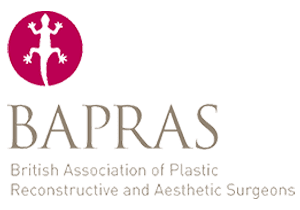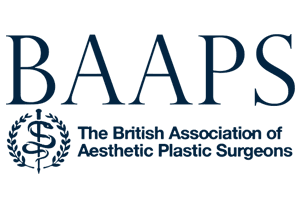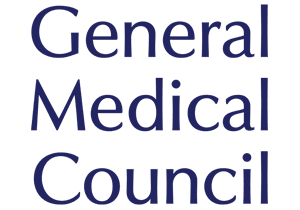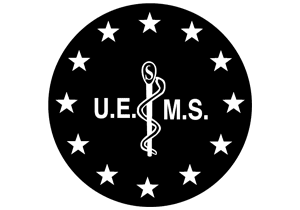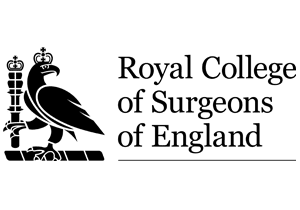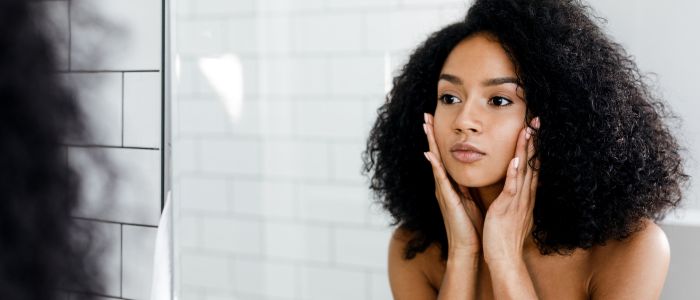
If you’re concerned about a mole, skin tag, or any other skin lesion, you’ve come to the right place. Our experienced dermatologist, Dr Dalia, specialises in diagnosing and treating a wide range of skin lesions, from benign growths to pre-cancerous and cancerous conditions. We understand that skin lesions can be worrying, which is why we offer complex evaluations and personalised treatment plans to help you achieve healthy, clear skin.
Types of Skin Lesions Treated
At Cheshire Cosmetic Surgery, we treat a range of skin lesions, ensuring that you receive the best possible care for your specific concern. We are diagnosing and treating the following types of skin lesions:
- Benign Lesions: These non-cancerous growths include moles, skin tags, cysts, and lipomas. While benign lesions are generally harmless, they can be unsightly or cause discomfort. Moles, in particular, should be monitored for any changes in size, shape, or colour, as these changes may indicate the development of skin cancer. Dr Dalia can remove benign lesions using surgical excision, cryotherapy, or laser therapy, depending on the size and location of the lesion.
- Pre-Cancerous Lesions: Actinic keratosis is a common pre-cancerous skin condition that appears as rough, scaly patches on sun-exposed areas of the skin. These lesions are caused by prolonged exposure to ultraviolet (UV) radiation and can progress to squamous cell carcinoma if left untreated. Our dermatologists can treat actinic keratosis using cryotherapy, topical medications, or photodynamic therapy, which involves applying a light-sensitive medication to the skin and activating it with a special light source.
- Cancerous Lesions: Skin cancer is one of the most common types of cancer, and early detection is important for successful treatment. The three main types of skin cancer are basal cell carcinoma, squamous cell carcinoma, and melanoma. Basal cell carcinoma appears as a pearly, translucent bump or a pinkish patch of skin, while squamous cell carcinoma may look like a scaly, red patch or a raised, wart-like growth. Melanoma, the most serious type of skin cancer, often develops from an existing mole and can be identified using the ABCDE rule. Dr Dalia uses surgical excision or other specialised techniques to remove cancerous lesions and prevent the spread of cancer.
- Vascular Lesions: These lesions are caused by an overgrowth of blood vessels in the skin and include cherry angiomas and spider veins. Cherry angiomas are small, red, dome-shaped bumps that can appear anywhere on the body, while spider veins are thin, web-like networks of blue or red veins that commonly appear on the legs and face. Our dermatologists can treat vascular lesions using laser therapy or electrosurgery, which involves using a small electric current to heat and destroy the affected blood vessels.
- Pigmented Lesions: Freckles and age spots are examples of pigmented lesions, which are caused by an overproduction of melanin in the skin. While these lesions are generally harmless, they can be cosmetically troublesome. Dr Dalia can treat pigmented lesions using laser therapy, cryotherapy, or topical medications that work to lighten the skin and even out skin tone.
No matter what type of skin lesion you’re concerned about, our team at Cheshire Cosmetic Surgery is here to help. We’ll work with you to develop a personalised treatment plan that addresses your specific needs and goals, ensuring that you achieve the best possible results.
Diagnosis and Evaluation
Early detection and regular skin checks are essential for maintaining healthy skin and catching potential problems before they become more serious. At Cheshire Cosmetic Surgery, we use a range of advanced techniques to diagnose and evaluate skin lesions, ensuring that you receive an accurate assessment and appropriate treatment.
During your initial consultation, Dr Dalia will perform a thorough visual examination of your skin, paying close attention to any lesions or areas of concern. She may use a specialised tool called a dermatoscope, which allows her to view the skin at a higher magnification and identify any subtle changes or abnormalities that may not be visible to the naked eye.
In some cases, she may recommend a biopsy to confirm a diagnosis or rule out skin cancer. A biopsy involves removing a small sample of skin tissue for laboratory analysis. Dr Dalia uses minimally invasive techniques to perform biopsies, ensuring that you experience minimal discomfort and scarring.
When examining moles, Dr Dalia uses the ABCDE rule to identify potentially cancerous lesions:
- Asymmetry: Is one half of the mole different from the other half?
- Border: Are the edges of the mole irregular, ragged, or blurred?
- Colour: Does the mole contain a variety of colours or an unusual colour, such as blue or black?
- Diameter: Is the mole larger than 6mm (about the size of a pencil eraser)?
- Evolution: Has the mole changed in size, shape, or colour over time?
If a mole exhibits any of these characteristics, Dr Dalia may recommend a biopsy to determine whether it is cancerous.
In addition to visual examination and biopsy, she may use other advanced diagnostic tools, such as digital mole mapping, to monitor the progression of skin lesions over time. Digital mole mapping involves taking high-resolution photographs of your skin and comparing them to previous images to identify any changes or new growths.
At Cheshire Cosmetic Surgery, we believe that early detection is key to achieving the best possible outcomes for our patients. That’s why we encourage regular skin checks and self-examination, so that you can identify any potential problems early on and seek prompt treatment.
Treatment Options
Once we’ve diagnosed your skin lesion, Dr Dalia will work with you to develop a treatment plan that addresses your specific needs and goals. At Cheshire Cosmetic Surgery, we offer a range of different advanced treatment options for skin lesions, ensuring that you receive the most effective and appropriate care for your condition.
- Surgical Excision: This is the most common treatment option for removing skin lesions, particularly those that are cancerous or pre-cancerous. Dr Dalia uses specialised techniques to remove the lesion and a margin of healthy skin around it, ensuring that all affected tissue is removed. She uses fine sutures to close the incision, minimising scarring and promoting optimal healing.
- Cryotherapy: Also known as freezing, cryotherapy involves using liquid nitrogen to destroy skin lesions. This treatment is often used for benign lesions, such as skin tags and warts, as well as pre-cancerous lesions like actinic keratosis. Dr Dalia will apply the liquid nitrogen directly to the lesion using a spray or cotton swab, causing the tissue to freeze and eventually fall off.
- Electrosurgery: This treatment uses a small electric current to heat and destroy skin lesions, particularly those that are raised or vascular in nature. Dr Dalia will use a fine wire electrode to deliver the current directly to the lesion, causing it to coagulate and shrink. Electrosurgery is often used to treat cherry angiomas, skin tags, and other benign lesions.
- Laser Therapy: We use advanced laser technology to treat a variety of skin lesions, including vascular lesions, pigmented lesions, and certain types of skin cancer. Laser therapy works by delivering a focused beam of light energy to the affected area, destroying the abnormal cells while leaving the surrounding healthy tissue intact. Dr Dalia will select the appropriate laser wavelength and settings based on the type and depth of your lesion, ensuring optimal results.
- Topical Medications: For certain types of skin lesions, such as actinic keratosis and superficial basal cell carcinoma, Dr Dalia may prescribe topical medications that can be applied directly to the skin. These medications work by causing the abnormal cells to slough off, revealing healthy, clear skin underneath. We’ll provide you with detailed instructions on how to apply the medication and what to expect during treatment.
- Photodynamic Therapy: This innovative treatment involves applying a light-sensitive medication to the skin and activating it with a special light source. The medication selectively targets abnormal cells, destroying them while leaving healthy cells unharmed. Photodynamic therapy is often used to treat actinic keratosis and certain types of skin cancer, particularly those that are superficial or located in cosmetically sensitive areas.
FAQs about Lesional Dermatology
How often should I have my skin checked for lesions?
- It’s recommended that you have a full-body skin check with a qualified dermatologist once a year, especially if you have a history of sun exposure or skin cancer. If you notice any new or changing lesions between checks, schedule an appointment with your dermatologist as soon as possible.
Is the treatment of skin lesions covered by the NHS?
- Some skin lesion treatments may be covered by the NHS if they are deemed medically necessary, such as the removal of cancerous or pre-cancerous lesions. However, the removal of benign lesions for cosmetic reasons is typically not covered by the NHS and would require private treatment.
How long does it take to recover from skin lesion treatments?
- Recovery time varies depending on the type of treatment and the size and location of the lesion. Most treatments, such as cryotherapy and laser therapy, have minimal downtime, and you can usually return to your normal activities immediately. Surgical excision may require a few days of rest and restricted activity to allow the incision to heal properly.
Will I have a scar after skin lesion removal?
- The likelihood and severity of scarring depends on the size and depth of the lesion, as well as the type of treatment used. Dr Dalia uses advanced techniques to minimise scarring, such as fine sutures and proper wound care. In most cases, scars will fade significantly over time and can be further improved with scar-lightening treatments if desired.
Can I prevent skin lesions from developing?
- While some skin lesions are genetic or develop due to factors beyond your control, there are steps you can take to reduce your risk of developing certain types of lesions. Protecting your skin from UV radiation by wearing broad-spectrum sunscreen, protective clothing, and avoiding tanning beds can help prevent sun-related lesions like actinic keratosis and skin cancer. Maintaining a healthy lifestyle, including a balanced diet and regular exercise, can also support overall skin health.
Further Reading about Procedures at Cheshire Cosmetic Surgery
- Read more about Medical Dermatology
- Read more about Mole Removal
- Read more about Skin Excision of Cyst, Tag, Wart
- Read more about Lipoma Removal
- Read more about Ganglion Removal
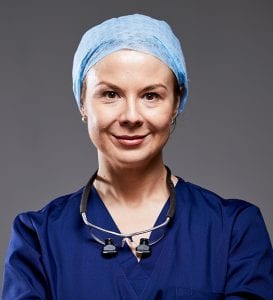
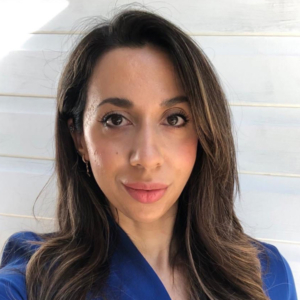 Dr Dalia obtained her medical degree from Queen Mary University – Barts and the London School of Medicine and Dentistry, graduating with a distinction and being awarded University of London Gold Medal in Medicine (Proxime Accessit) and the Glanfield Harris Best of Gold Medalists 2012-2013 award.
Dr Dalia obtained her medical degree from Queen Mary University – Barts and the London School of Medicine and Dentistry, graduating with a distinction and being awarded University of London Gold Medal in Medicine (Proxime Accessit) and the Glanfield Harris Best of Gold Medalists 2012-2013 award.